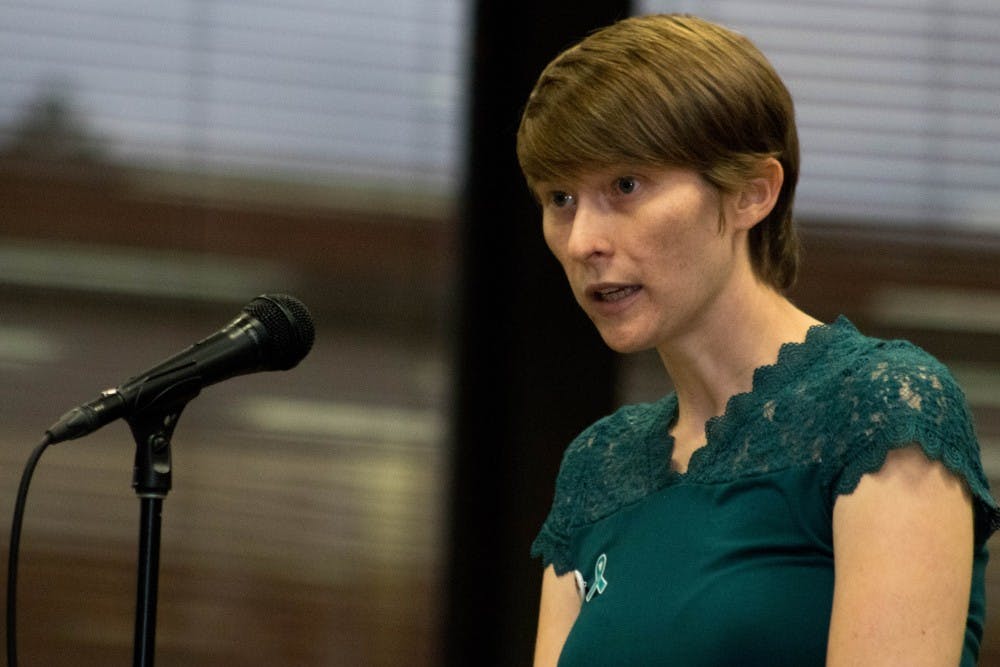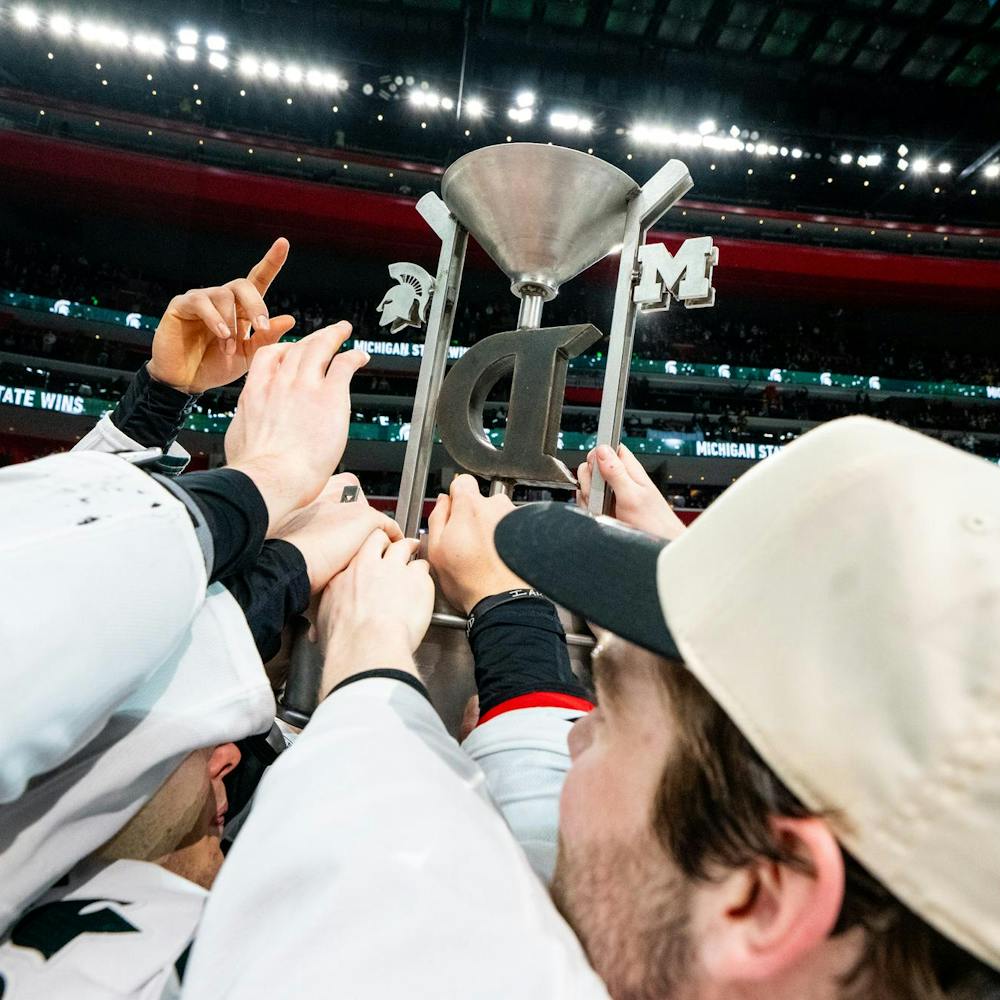The year-long search for a permanent Michigan State president — referred to in a statement from the search committee co-chairs as “the next chapter in our history” — has been met with criticism.
Through a closed vetting of candidates, the presidential search committee hopes to find the ideal future president. But through petitions, public comment at Board of Trustees meetings and social media posts, members of the university community have expressed that an ideal president would be one willing to openly speak with students and faculty.
Different sides of the university community have offered varying perspectives on the positives and negatives of having a closed presidential search as opposed to an open one:
Co-chair of the search committee
Despite her opposition to opening the presidential search, Trustee Dianne Byrum — co-chair of the presidential search committee — said she understands the calls from the community to do so.
“I respect their opinion, I just respectfully disagree with their position,” Byrum said. “I want to make it clear that I do respect their point of view.”
Byrum said great care was taken in seeking community involvement. More than 20 input sessions were held in the beginning of the search process to gather community feedback. The criteria being used to hire the next president is directly taken from comments made at the sessions, Byrum said.
The search committee has a diverse array of community representatives, the largest group represented being MSU faculty. Committee members aren’t afraid to raise their voices, she said.
The details of the process have been communicated to the community regularly, whether through appearances, community letters or the search’s website, Byrum said.
“The search process has been very open and transparent, much more so than a normal search would be, and clearly more transparent than has been the history of Michigan State University,” Byrum said.
Following the input sessions, MSU’s presidential search has been closed to the public as they go through candidates. Despite calls for transparency and the chance for the community to interact with finalists, Byrum isn’t budging.
“We’re not moving off from the confidentiality of the search, or we will not meet the criteria that we heard loud and clear from the MSU community that they want us to hire the best possible person to be the next president,” Byrum said.
Citing comments made at input sessions objecting to “on-the-job training” for the next president, Byrum said the ideal candidate needs to have deep experience. Those individuals would have prestigious positions at universities, and would not consider applying unless the search was confidential.
Though the search might not be conducted in the way some community members are most comfortable with, in the end, it will bring the leader they want to MSU, Byrum said.
Community advocates
To James Madison Associate Professor Anna Pegler-Gordon, it’s clear MSU needs to change.
She also said it’s clear some progress has been made — there are new trustees who have supported the policy proposals of Reclaim MSU, the community activist group she is a vocal member of. There is also a new acting president, Satish Udpa, who has rebuilt some of the trust lost during former Interim President John Engler’s tenure, she said.
“Reclaim MSU is really happy about those changes, but one really key area where the current board and upper administration are resistant to change is making sure members of the MSU community have the opportunity to engage with presidential candidates — specifically the top finalists — in open forums,” Pegler-Gordon said. “We think that that change is essential.”
Pegler-Gordon insists it’s critical for the community to meet with and vet final candidates. Referring to the appointment of U.S. Supreme Court Justice Brett Kavanaugh, she said concerns about specific candidates can arise before they’re placed into the position.
“You don’t have any public vetting if you don’t know the person’s identity,” Pegler-Gordon said. “You don’t have any ability to actually learn whether they have achieved some of the key issues that are actually outlined in the description for the candidacy, or the issues that were identified by members of the community.”
Support student media!
Please consider donating to The State News and help fund the future of journalism.
Being able to communicate with candidates before one is chosen by the Board of Trustees in June would ensure they meet community demands. Specifically, they need to meet a demand for experience in cultural change at a university, particularly in relation to sexual assault, Pegler-Gordon said.
“Reclaim thinks it would be extremely problematic if you had a candidate who had any kind of sexual assault issues on (their) campus,” she said. “And most campuses do have this.”
Higher education expert
Assistant Professor Brendan Cantwell, an MSU expert on higher education governance and policy, said closed or partially-closed searches may or may not be typical, but they were less common in the past.
A closed search will net more candidates because of the promised confidentiality, but the practice is also likely being recommended by recruitment firms, Cantwell said.
“Universities typically don’t hire executives without the aid of an executive recruitment firm, and they probably advise universities to do it,” Cantwell said. “I think that it also probably reflects a desire for trustees and other executives to be able to make decisions without as much public scrutiny and feedback.”
From his perspective as a researcher outside of the process, Cantwell assumes MSU would still get enough candidates, and would be able to find a good president in an open search — but there are good reasons to keep it closed, he said.
“That would be true for any university searching for a president of any kind,” Cantwell said. “But the problem right now in Michigan State is that a lot of people in the university community don’t feel a great deal of trust, and believe that transparency and decisions made behind closed doors cause great harm.
Discussion
Share and discuss “Perspectives on closed vs. open MSU presidential search” on social media.







